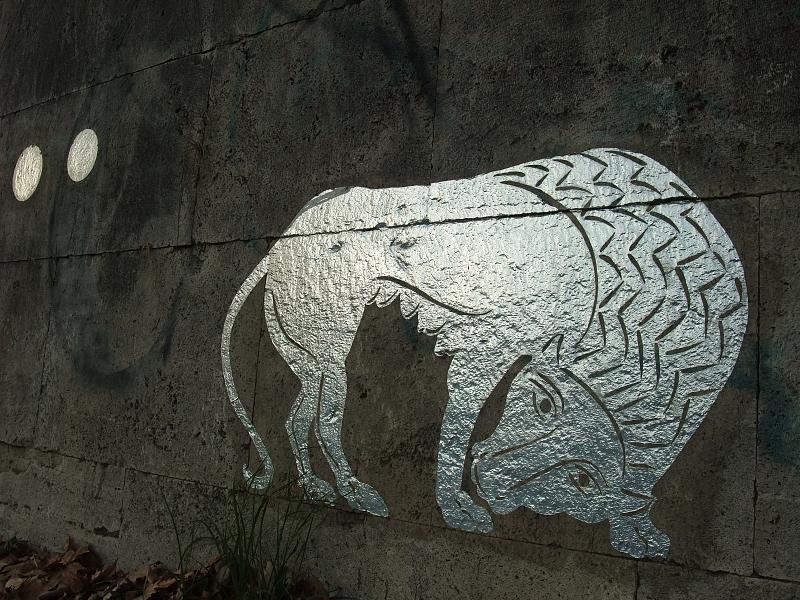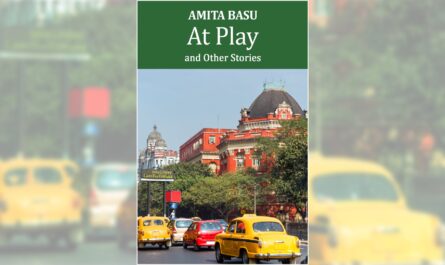It wasn’t like that. Our mother suckled us for years in the rank, familiar den. She chewed the deer meat until it was a fine paste she could drop into our mouths. She must have wondered at our toothless gums, why our brothers grew so quickly. The one you call Remus was bigger. He took the first and last bite of everything we had.
By the time we could join our brothers in the hunt, our mother was in decline. It was I who brought her the entrails and shins. She lingered for weeks inside our den, nursing a paw that began to stink.
When winter came the snow kept getting deeper. We could feel each other’s ribs as we huddled in a knot at the bottom of our cave. The cold made it difficult to sleep, and I woke at odd hours. There, among the soft whining of my brothers, I stared out of the den’s entrance floating above us like a cloud of stars.
We began to starve in earnest. One night I broke a path as far as I could, knowing the whole country was hungry, that something else would have to venture forth. I failed to catch anything but the scent of my own wandering, and I returned to find our mother disassembled, the muzzles of my brothers bloody. I was too weak to rebuke them, and they made it clear the marrow was theirs. It was Remus whose belly sagged most heavily.
Whether I fled or was driven out I cannot say, but the shepherds found me. My first memory of them was waking to food made better by fire, the pleasure of blankets. They gave me a new language, and I was amazed at its precision, that the dogs obeyed so readily. In time I could express the exact shade of my gratitude and my despair.
I tried my hand at herding, but I was better at building dens. They called them houses, huts, granaries, barns. I caused one to rise where their own was falling down. I built another one beside it, only better. I had a knack for making stones lock into each other, for thatching a roof that could keep out any weather.
Soon other men arrived on our grassy hill. They marveled at the clarity of the Tiber and how it never made them sick, so I constructed an aqueduct that diverted the river to a field they were filling with grapes. I showed them how to pave the roads that connected us all like rope. Everything rose, became sturdy, could be seen for many miles. They said it was a city. They said I was their king.
When our crops failed, we gathered our spears and conquered the people to the north of us. We murdered the men as they knelt beside their flocks. We slaughtered their sheep and roasted them whole over the burning rafters of their homes — for hunger and loyalty can never coexist. Then, because the crown fit snugly upon my head, we took their women back with us, ignoring their tears and all that they implored. It was a long time before I understood what I had done and why I was so hated.
Some nights, I step alone onto the palace steps — with a bowl of wine and the smell of my wife all over me, my daughters and my sons asleep on their many pillows — and I listen to the pack gathering in the hills. Most of the old voices have dropped away, and I imagine the sad feast that must have attended each dead brother. I understand now how hunger joins us, how I would have had my fill if the neck was warm and waiting.
One call in the darkness is unlike all the others. This is Remus. I can feel him staring down into my lighted windows, regretting our mother, knowing I will kill him if he ever attempts to warm himself in the triumph of my bed.
I think of him often — full of worms and rancid deer, a grin of loosening teeth — maneuvering his way to the center of the sleeping pack. We are old now, and the two of us are dying surrounded by stone, I of the palace and he of the den. But the same stars salt our sky.
Ah, Remus, I forgive you for nothing, and I hope that you can bear it.
Charles Rafferty’s most recent collections of poems are The Smoke of Horses (BOA Editions, 2017) and Something an Atheist Might Bring Up at a Cocktail Party (Mayapple Press, 2018). His poems have appeared in The New Yorker, O, Oprah Magazine, Prairie Schooner, and Ploughshares. His stories have appeared in The Southern Review and New World Writing, and his story collection is Saturday Night at Magellan’s (Fomite Press, 2013). He has won grants from the National Endowment for the Arts and the Connecticut Commission on Culture and Tourism, as well as the 2016 NANO Fiction Prize. Currently, he directs the MFA program at Albertus Magnus College and teaches at the Westport Writers’ Workshop.




